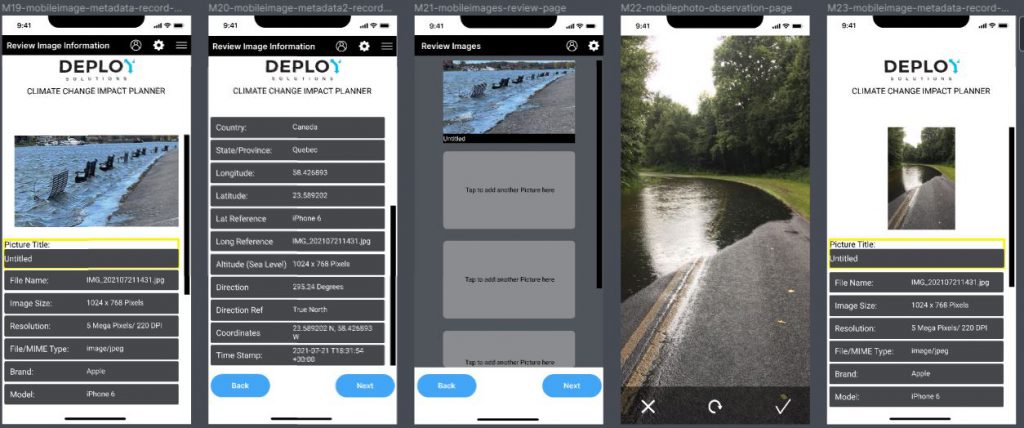Projects
CC22 - Citizen Science observations for flooding - Creating prototype wireframe design
Project start and end dates:
2021-07-02 to 2021-08-17
Create low-fidelity wireframes for the citizen science feature and pages, detailing how citizen scientists will submit photos and other “ground truth” observations to the Trusted Authorities, during /after floods, send them to trusted authorities for review, and allow trusted authorities to review and respond to the observations.
The design must show all the pages/steps in the process, in enough design detail that it will be clear to our developers what to build.

Sankara Narayanan helped create low-fidelity wireframes for the Citizen science feature where citizens could submit photos and other “ground truth” observations to the Trusted Authorities, during /after floods -> trusted authority review -> trusted authority feedback loop in its entirety.
Sankara Narayanan demonstrated understanding of Figma web-based prototyping tool. While the project work was complex and only intended for low-fidelity wireframe, the student produced results of professional quality and complexity. He also demonstrated excellent interpretation of design architecture for the project.
He demonstrated enthusiasm, architecture and development skills, creativity and insight throughout the project. He was always pleasant, professional, keen to understand our project goals and objectives, and willing to go extra mile to help achieve them.
Thank
You!
We would like to thank Sankara Narayanan Saravanan, and the teaching staff of BUSI 4996U.
Related Project
Software can help the world respond to climate change impacts and disasters.
In 2019 we set out to investigate if there is a need for a solution that gives citizens personalized help preparing for and recovering from climate change impacts and lets trusted authorities assist them and report on their results.
As part of this effort, a great deal of market and technical research was conducted over the last few years. Over 140 students have been involved so far, in dozens of academic institutions in Canada and internationally.
Our greatest finding is the willingness of citizens to take responsibility and help themselves, their neighbors and community plan for, mitigate and recover from climate change impacts and disasters. We also confirmed that a software solution can be built to help overcome the barriers they face when trying to do so.
Now we’re working on a prototype and sharing our findings and progress. Find out more on our OASIS project website!
The University of Ontario Institute of Technology, corporately branded as Ontario Tech University or Ontario Tech, is a public research university located in Oshawa, Ontario, Canada. Ontario Tech’s main campus is located on approximately 400 acres of land in the northern part of Oshawa.


